
The FDA grants Fast Track designation to TAK-426, Takeda’s purified, inactivated, alum-adjuvanted whole Zika virus vaccine candidate.

The FDA grants Fast Track designation to TAK-426, Takeda’s purified, inactivated, alum-adjuvanted whole Zika virus vaccine candidate.
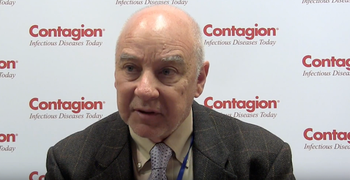
David A. Schwartz, MD, MS Hyg, FCAP, notes a topic of interest at the First International Zika Conference.

Silvio Pitlik, MD, explains why he feels Lyme disease can make individuals obsessive.

Viviane Boaventura, MD, MsC, PhD, discusses which arbovirus poses the greatest threat to Brazil.

Prof. Francisco Veas, PhD, discusses the launch of a task force dedicated to gaining a better understanding of Lyme disease.

Viviane Boaventura, MD, MsC, PhD, explains how Zika virus causes auditory loss.

David A. Schwartz, MD, MS Hyg, FCAP, explains how researchers from all over the world have come together to share their research on Zika virus.

Silvio Pitlik, MD, provides insight into the prevalence of Lyme disease in Israel.

Prof. Francisco Veas, PhD, chief security officer, Institut de Recherche pour le Développement, France, explains some of the issues faced by patients with Lyme disease living in Europe.

Viviane Boaventura, MD, MsC, PhD, discusses ongoing research related to auditory complications due to congenital Zika syndrome.

Joergen Richt, DVM, PhD, discusses which animal models are being used to study Zika virus.

Viviane Boaventura, MD, MsC, PhD, shares how past research has demonstrated that adults can experience Zika-associated hearing loss.

Silvio Pitlik, MD, visiting scientist, Weizmann Institute of Science, Israel, explains how the first Lyme disease patients were misdiagnosed.

Joergen Richt, DVM, PhD, discusses the transmission cycle of Zika virus.

Joergen Richt, DVM, PhD, discusses animals that have proven susceptible to Zika virus replication after experimental infection.
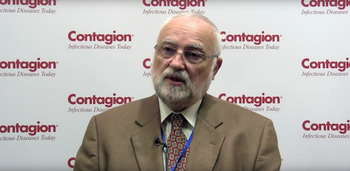
Jean-Paul Gonzalez, MD, PhD, Deputy Director, Center of Excellence for Emerging and Zoonotic Animal Diseases (CEEZAD), Kansas State University, Adjunct Professor, Kansas State University, explains the importance of vector control in the fight against Zika.
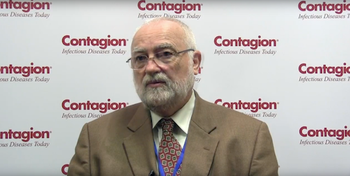
Jean-Paul Gonzalez, MD, PhD, Deputy Director, Center of Excellence for Emerging and Zoonotic Animal Diseases (CEEZAD), Kansas State University, Adjunct Professor, Kansas State University, discusses the parallels between past Ebola outbreaks, and how they can help us manage the current Zika pandemic.
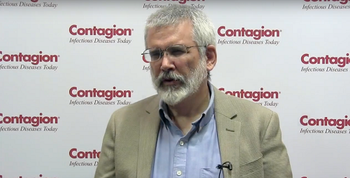
Robert Malone, MD, MS, CEO/CSO of Atheric Pharmaceuticals, LLC, discusses the benefits of repurposing drugs for emerging infectious diseases rather than going down the very long, costly road of developing new ones.

Annelies Wilder-Smith, MD, PhD, professor at Lee Kong Chian School of Medicine in Singapore, discusses the strain of Zika that hit Singapore in 2016.
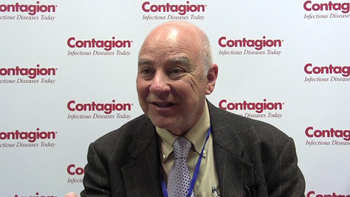
David A. Schwartz, MD, MS Hyg, FCAP, clinical professor of pathology at Medical College of Georgia, Augusta University, explains how congenital infection with Zika virus differs from congenital infection with other viruses.

David A. Schwartz, MD, MS Hyg, FCAP, clinical professor of pathology at Medical College of Georgia, Augusta University, explains his research, which focuses on mechanisms of transmission of the Zika virus from mother to child.

Alice Panchaud, PharmD, PhD, clinical pharmacist and pharmacoepidemiologist, CHUV, Lausanne University Hospital, Switzerland, explains how researchers can anonymously enter patient data to the international Zika virus registry, which collects data on women exposed to the mosquito-borne virus during pregnancy.

Carmen Zorrilla, MD, professor of obstetrics and gynecology, University of Puerto Rico, School of Medicine, discusses how the model of prenatal care centering works.
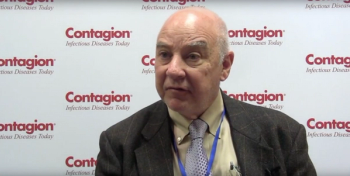
David A. Schwartz, MD, MS Hyg, FCAP, clinical professor of pathology at Medical College of Georgia, Augusta University, discusses Zika virus in indigenous populations.

Annelies Wilder-Smith, MD, PhD, professor at Lee Kong Chian School of Medicine in Singapore, examines the effectiveness of personal protection against Zika, Dengue, and Chikungunya viruses.
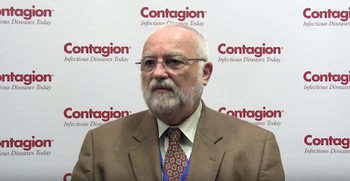
Jean-Paul Gonzalez, MD, PhD, Deputy Director, Center of Excellence for Emerging and Zoonotic Animal Diseases (CEEZAD), Kansas State University, Adjunct Professor, Kansas State University, discusses the Zika virus from a historical perspective.

Carmen Zorrilla, MD, professor of obstetrics and gynecology, University of Puerto Rico, School of Medicine, discusses the social stigma surrounding Zika- and HIV-positive women.

David A. Schwartz, MD, MS Hyg, FCAP, clinical professor of pathology at Medical College of Georgia, explains how the Zika virus pandemic has brought about a new form of research sharing.
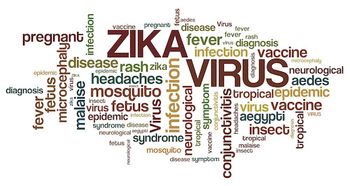
Robert W. Malone, MD, MS, has identified several already-licensed drugs that would be successful in blocking Zika virus replication in human tissues.

Adriano Schneider, MS, PhD Candidate, Bioinformatics and Genomics, UNC Charlotte, maps the evolution of the Zika virus.